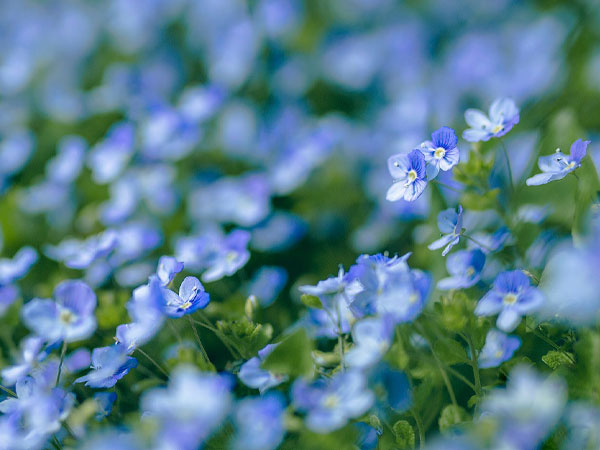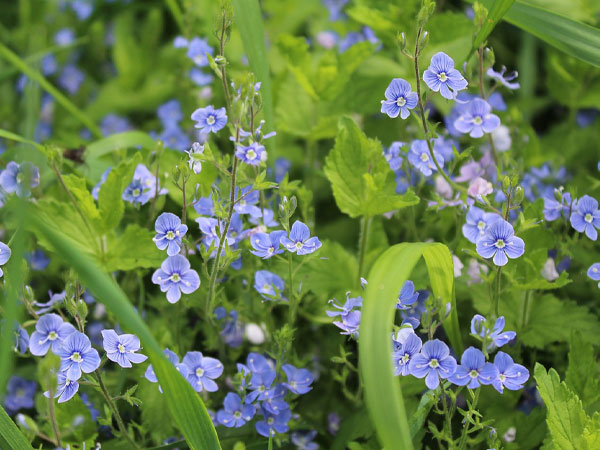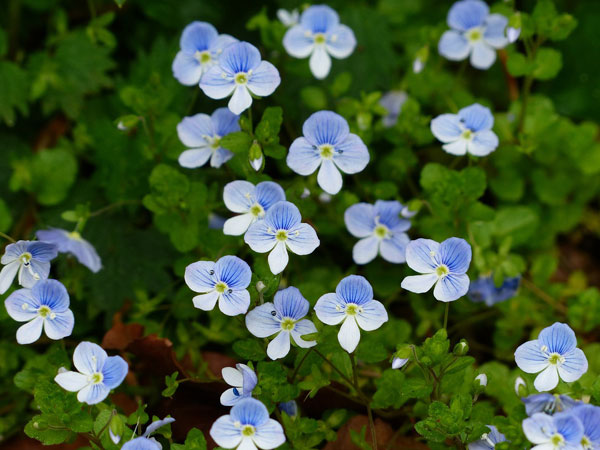Veronica / Speedwell
Veronicas, also known as speedwells, are a group of herbaceous perennial plants that are prized for their vibrant, showy flowers and hardy nature. They are members of the Plantaginaceae family and are native to many regions of the world, including North America, Europe, and Asia.
Veronicas are highly adaptable plants that can grow in a variety of soil types and conditions, ranging from moist to dry, and sun to partial shade. They are generally easy to grow and care for, making them a popular choice for both beginner and experienced gardeners.
One of the most notable features of veronicas is their tall, spiky flower stalks, which can reach heights of up to three feet in some species. These flowers come in a range of colors, including blue, purple, pink, and white, and are arranged in dense, cylindrical spikes. The flowers are highly attractive to bees, butterflies, and other pollinators, making them a great choice for wildlife-friendly gardens.



There are many different species and cultivars of veronicas, each with its own unique characteristics and growing requirements. Some popular species include Veronica spicata, Veronicastrum virginicum, and Veronica gentianoides.
Veronica spicata, also known as spike speedwell, is a clump-forming perennial that produces dense spikes of blue or purple flowers in the summer. It prefers full sun and well-drained soil and is a great choice for borders or rock gardens.
Veronicastrum virginicum, also known as Culver’s root, is a tall, upright perennial that produces spikes of white or pink flowers in the late summer. It prefers moist, well-drained soil and partial shade and is a great choice for woodland gardens or wetland edges.
Veronica gentianoides, also known as gentian speedwell, is a low-growing perennial that produces delicate blue flowers in the late spring. It prefers partial shade and moist, well-drained soil and is a great choice for edging or groundcover.
In addition to their ornamental value, veronicas also have a number of practical uses. Many species are used in traditional medicine to treat a variety of ailments, including digestive issues and respiratory problems. Some species are also used as culinary herbs or to make tea.
Overall, veronicas are a versatile and attractive group of plants that are well-suited to a range of growing conditions. Whether used in borders, rock gardens, or as groundcovers, these hardy perennials are sure to add beauty and interest to any garden.